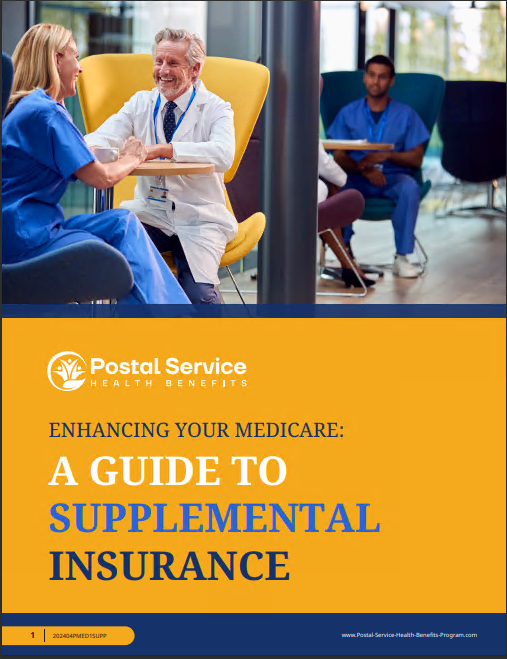Key Takeaways
- Postal workers retiring with PSHB (Postal Service Health Benefits) should understand how their health coverage transitions in retirement to ensure continuous protection.
- Retirees need to evaluate their health care options carefully to avoid gaps in coverage and make informed decisions for the future.
Retiring with PSHB? What Postal Workers Should Know About Keeping Their Health Coverage in Retirement
As postal workers transition to retirement, securing health insurance coverage is a critical part of planning for the future. For those enrolled in the Postal Service Health Benefits (PSHB) program, understanding how to maintain their health benefits is essential. Retirement often brings questions about how current coverage will change and what steps are necessary to retain vital protections. This article outlines key considerations postal workers should bear in mind when it comes to health insurance in retirement and navigating the PSHB program.
Understanding PSHB and Retirement
The Postal Service Health Benefits program provides health coverage specifically designed for employees of the United States Postal Service (USPS). As postal workers approach retirement, it’s important to grasp the basics of how this coverage works and what it means for them moving forward.
The PSHB program differs slightly from the Federal Employees Health Benefits (FEHB) program, offering unique options tailored to the needs of postal workers. However, when you retire, the two programs operate similarly in many respects, including the need to maintain continuous enrollment to ensure health care protection. Understanding this relationship and how it affects your health care needs in retirement is vital.
Continuous Enrollment: Why It’s Essential
One of the most important rules for retiring postal workers is to ensure continuous enrollment in a health plan. Continuous coverage means you remain enrolled in an eligible health plan without interruption during your transition from active employment to retirement. Maintaining this uninterrupted enrollment is crucial because if you allow your coverage to lapse, you could face difficulties re-enrolling later, and you may even lose your eligibility altogether.
If you’re transitioning from PSHB to another form of coverage, such as Medicare, make sure to coordinate these plans well in advance to prevent any gaps in your health care protections.
Medicare and PSHB: How They Work Together
For postal workers retiring at age 65 or older, understanding how PSHB and Medicare work together is key. While PSHB covers many health care needs, Medicare becomes an additional resource for those eligible.
Medicare is divided into different parts: Part A (hospital insurance), Part B (medical insurance), Part C (Medicare Advantage plans), and Part D (prescription drug coverage). As a retiree, enrolling in both PSHB and Medicare can provide comprehensive protection. In many cases, Medicare serves as the primary payer, while your PSHB coverage acts as a secondary payer, filling in gaps left by Medicare. This arrangement can reduce out-of-pocket costs, ensuring that retirees have access to the care they need.
Should You Enroll in Medicare Part B?
A frequent question for postal workers retiring with PSHB is whether to enroll in Medicare Part B. Medicare Part B covers physician services, outpatient care, and other medical services not included in Medicare Part A. Although Part B requires a monthly premium, many retirees find that it complements their PSHB plan, providing more comprehensive coverage.
It’s important to evaluate your individual needs, considering factors like your overall health, expected medical expenses, and how much you can afford in premiums. For many, the added peace of mind of having both PSHB and Medicare Part B makes this decision a valuable investment in their long-term health care.
What Happens If You Don’t Enroll in Medicare?
While it’s common for retirees to enroll in Medicare when they become eligible, some may choose not to. Opting out of Medicare Part B or Part D, for example, could have significant consequences. If you don’t enroll in Medicare when first eligible, and later decide to join, you may face late enrollment penalties. These penalties can lead to higher premiums for the rest of your life.
Additionally, failing to enroll in Medicare could leave you with significant gaps in your coverage, which could increase your out-of-pocket costs for medical care. PSHB plans alone may not provide the same level of coverage as they do when paired with Medicare.
Family Coverage: What About Your Spouse and Dependents?
If you have family members covered under your PSHB plan, such as a spouse or dependents, it’s important to ensure that their coverage remains intact after you retire. In many cases, your spouse or dependent children will be able to continue receiving health benefits through the PSHB plan. However, this requires careful planning and ensuring that their coverage is not disrupted during the transition to retirement.
It’s also worth noting that once you retire, your family members may need to explore other health coverage options, such as enrolling in Medicare if they are eligible. Planning for this transition early ensures that your loved ones maintain the health protection they need.
Managing Prescription Drug Coverage in Retirement
Prescription drug coverage is another critical aspect of health care for postal retirees. Most PSHB plans include comprehensive drug benefits, but once you are eligible for Medicare, you may also consider enrolling in Medicare Part D, which specifically covers prescription medications.
Many PSHB enrollees find that their existing prescription drug coverage is sufficient, but it’s important to review the costs and benefits of both PSHB and Medicare Part D plans. In some cases, retirees opt for additional Medicare Part D coverage to reduce out-of-pocket expenses for medications, especially if they require multiple prescriptions or more specialized treatment.
Understanding Your Premiums in Retirement
As a postal worker, your premiums may change once you retire, depending on how you structure your health coverage. Whether you stay solely with your PSHB plan or combine it with Medicare, your premium costs will differ from what you paid during your working years.
It’s important to review how your premiums are structured, whether they are deducted from your annuity or paid directly out-of-pocket. Understanding this financial commitment helps you budget for your health care costs in retirement and prevents any surprises down the road.
Plan Ahead: Preparing for Open Season in Retirement
Even in retirement, postal workers need to stay engaged in the health care enrollment process, particularly during the annual Open Season. Open Season is the designated time each year when you can make changes to your health benefits plan. Retirees can switch between different PSHB plans or adjust their Medicare coverage during this time.
It’s important to assess your health care needs annually, as they may change over time. Reviewing your options during Open Season allows you to make adjustments that best suit your circumstances, ensuring that you continue to have adequate coverage throughout your retirement.
Seek Advice from Licensed Insurance Agents
Navigating the complexities of health coverage as a retiring postal worker can be challenging, especially when coordinating between PSHB and Medicare. For this reason, it’s beneficial to consult with licensed insurance agents who can help you evaluate your options and make the best choices based on your individual needs.
Licensed agents have expertise in both PSHB and Medicare and can offer insights on how to maximize your benefits without overpaying for unnecessary coverage. They can also assist you in understanding any changes to your health coverage as you transition into retirement.
Secure Your Future Health Coverage Today
For postal workers retiring with PSHB, understanding how to keep their health coverage in retirement is essential. With the right planning and an informed approach, you can ensure that you and your family are protected from unexpected health care costs. Evaluating your Medicare options, staying aware of your PSHB plan benefits, and seeking advice when necessary are all critical steps in securing long-term health protection.
Remember, your health care needs in retirement will likely evolve over time, so regularly reviewing and adjusting your coverage will help ensure that you have the right protection as you age.
Contact Information:
Email: [email protected]
Phone: 9515552345






